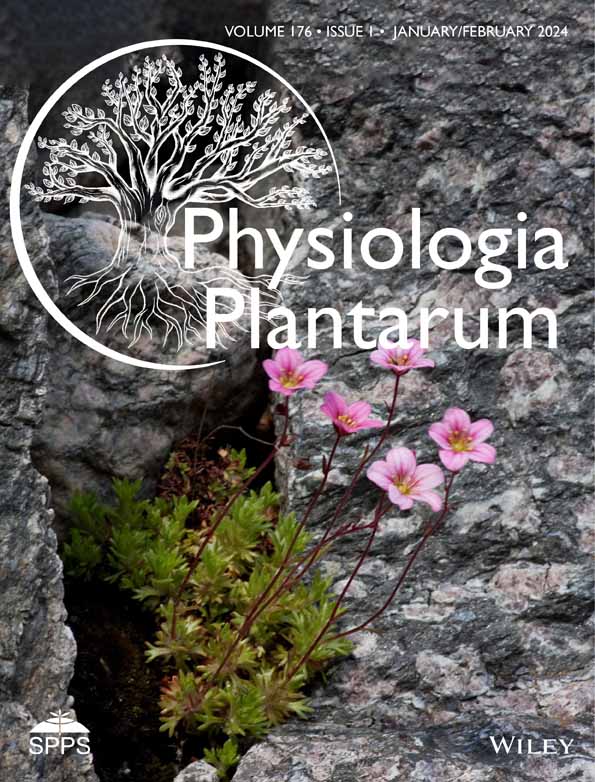聚胞藻(Synechocystis sp. pcc6803)早期光系统II组装的亚细胞定位。
IF 5.4
2区 生物学
Q1 PLANT SCIENCES
引用次数: 0
摘要
蓝藻中光系统II (PSII)从头组装的空间组织,特别是其亚细胞起点,是一个正在进行的科学争论的问题。在这里,我们使用荧光显微镜和生化实验来证明早期PSII生物发生最有可能的标记物,即PSII反应中心D1蛋白的前体,主要聚集在靠近细胞外围的类囊体会聚区。本文章由计算机程序翻译,如有差异,请以英文原文为准。
The subcellular localisation of early photosystem II assembly in Synechocystis sp. PCC 6803.
The spatial organization of the de novo assembly of photosystem II (PSII) in cyanobacteria, particularly its subcellular starting point, is a matter of ongoing scientific debate. Here, we use fluorescence microscopy and biochemical experiments to demonstrate that the most likely marker of early PSII biogenesis, i.e., the precursor of the D1 protein of the PSII reaction centre, accumulates primarily at thylakoid convergence zones close to the periphery of the cell.
求助全文
通过发布文献求助,成功后即可免费获取论文全文。
去求助
来源期刊

Physiologia plantarum
生物-植物科学
CiteScore
11.00
自引率
3.10%
发文量
224
审稿时长
3.9 months
期刊介绍:
Physiologia Plantarum is an international journal committed to publishing the best full-length original research papers that advance our understanding of primary mechanisms of plant development, growth and productivity as well as plant interactions with the biotic and abiotic environment. All organisational levels of experimental plant biology – from molecular and cell biology, biochemistry and biophysics to ecophysiology and global change biology – fall within the scope of the journal. The content is distributed between 5 main subject areas supervised by Subject Editors specialised in the respective domain: (1) biochemistry and metabolism, (2) ecophysiology, stress and adaptation, (3) uptake, transport and assimilation, (4) development, growth and differentiation, (5) photobiology and photosynthesis.
 求助内容:
求助内容: 应助结果提醒方式:
应助结果提醒方式:


